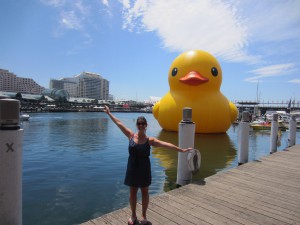Can you believe it?? This coming week is the final week of class! Below is everything you need to know about what needs to happen between now and the last day of the semester.
Office Hours
If you need to see me for anything, my last days of office hours until the start of the Spring 2015 semester are Tu 12/16 (11:15am-12:15pm + by appointment) and W 12/17 (2-3pm + by appointment).
Final Draft of Research Essay
Your final draft (with 1-2 page Reflective Cover Letter, on entire Research Project Process) is due at the start of class on Tuesday, 12/16. I look forward to seeing how the research projects turned out! For more details about the assignment, please visit the Research Project page (scroll to the very bottom, Part 3, for information about the Research Essay, & Part 4, for the Reflective Cover Letter).
*As discussed in class, in addition to the individualized written feedback I provided on your first drafts, I also wrote up some helpful notes for revision that apply to everyone. You can read/download/print them here. Happy revising!
End-of-the-Semester Party
On Tuesday (12/16), we will be reviewing for the final exam, but also celebrating the end of the semester. I encourage you to bring in snacks to share with the class and we can enjoy refreshments during the review (I will bring in some goodies as well). Please leave a “reply” to this post letting us know what you will bring, so we have a good mix of refreshment (things like cups, paper plates, and napkins are also important items to bring). Looking forward to your presentations next week ![]()
Final Exam
As you know, your final exam will consist of actively reading a short article at home, writing a summary paragraph of that article (optional) at home, and then crafting an essay in response during class. The actual final exam (writing a response essay to the article) will take place in class on Thursday, 12/18.
I encourage you, if you have not done so already, to review the “Strategies for Summarizing” post I made earlier this semester on on course site and the Final Exam Review post I made recently.
Remember, for the response essay, while you should use your own experience (and the first person), you have to place that personal experience in dialogue with the text/article you are given (you must show connections between the article’s points–use details/quotes from the article–and your experiences/evidence).
All of the skills you practiced this semester (creating an Introduction, developing a thesis statement, paragraph development, creating strong topic sentences, critical reading, analysis, incorporating/citing sources, providing claims/evidence) apply here, so as long as you review those strategies, take the practice final exams I provide, and pay attention/take notes during our in-class final exam reviews, you should be all set for the exam.
*You may bring a dictionary (an actual, printed dictionary) to class to use on the day of the exam (but you will not be allowed to use your phone, tablet, or computer in class to look up words).
The final exam is worth 10% of your overall course grade, and you must pass it to pass the course.
Please remember to arrive to class on time both days this week, as we will begin the exam promptly at the start of class on Thursday (and the final exam review promptly at the start of class on Tuesday) and will end exactly at the end of class. If you arrive late, you will not be given extra time to complete the exam.
Final Course Reflections
Your Individual Final Course Reflection is due in class on Th 12/18 (this is a mandatory–not optional–assignment). Please visit the Final Course Reflection page on our site for more details on this assignment.
Final Course Grades
The deadline for professors to submit final course grades for the Fall 2014 semester is M 12/29 (though I plan to submit that much sooner than that). Please wait to view your course grade online through CUNYfirst (I will not be giving out final course grades via e-mail). Once you see your final grade posted online, you should feel free to e-mail me for your final exam grade (you will have all of your other grades already).
Final grades are non-negotiable, though I am always more than happy to discuss them/your work with you at any point in person. If you would like to discuss any of your grades/receive additional feedback on the final assignments/exams, you should e-mail me to schedule an appointment to discuss your work when we return to campus at the end of January when the new semester starts up.
Thank you, & stay in touch!
Finally, it was a pleasure to work with you all this semester. I wish you the best of luck wrapping up the semester and on your final exams, and in your future endeavors at City Tech and beyond. You all worked incredibly hard this semester, and I really appreciate your consistent effort and good cheer day in and day out (especially for a 10am class all the way up on the 10th floor!). I hope you enjoyed yourselves and learned a lot about happiness/well-being, the writing process, reflection, collaboration/peer review, critical thinking, reading, and writing. Have a wonderful winter break, & don’t hesitate to be in touch in future semesters to discuss your work in this course/beyond, and/or to just say hi ![]()




